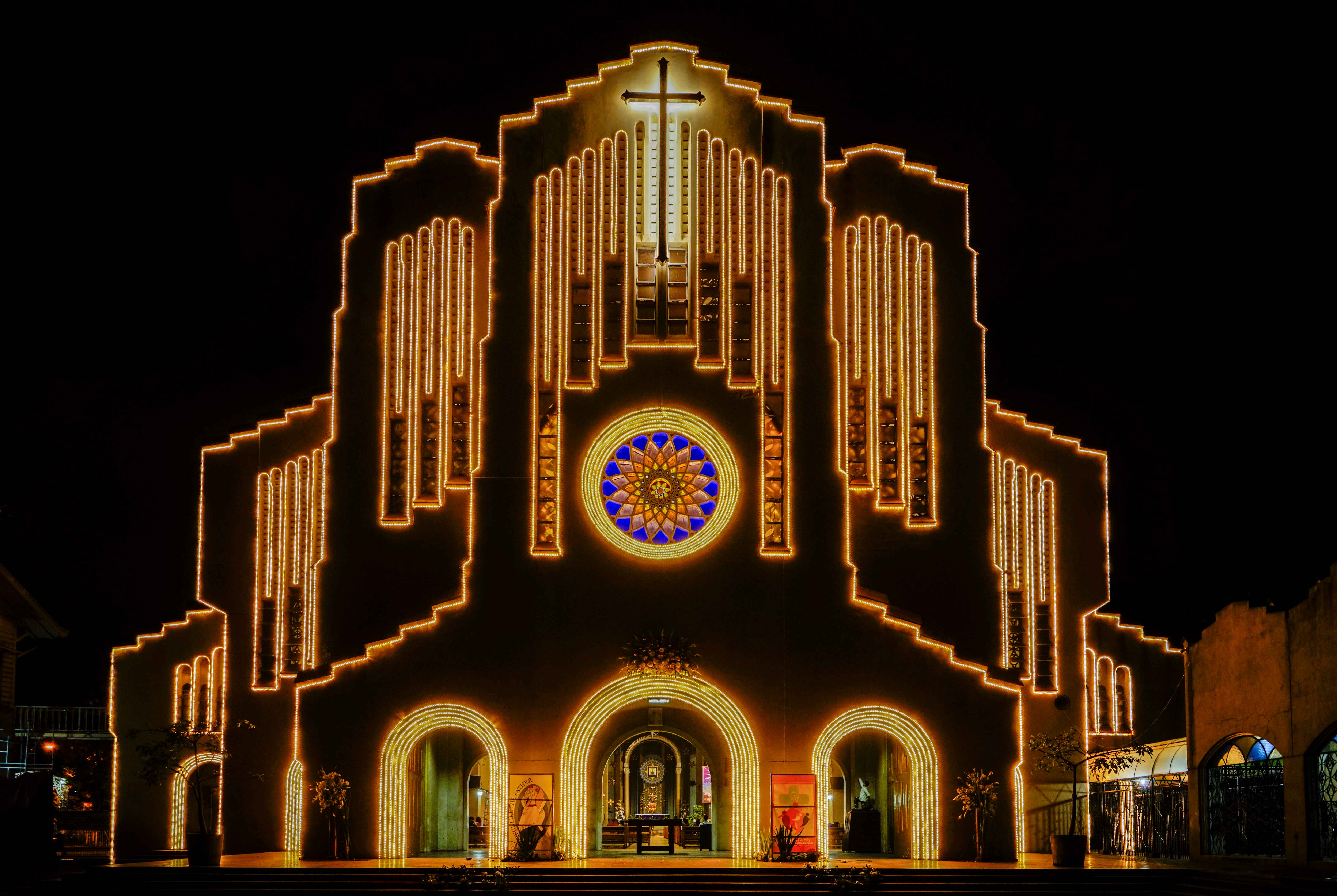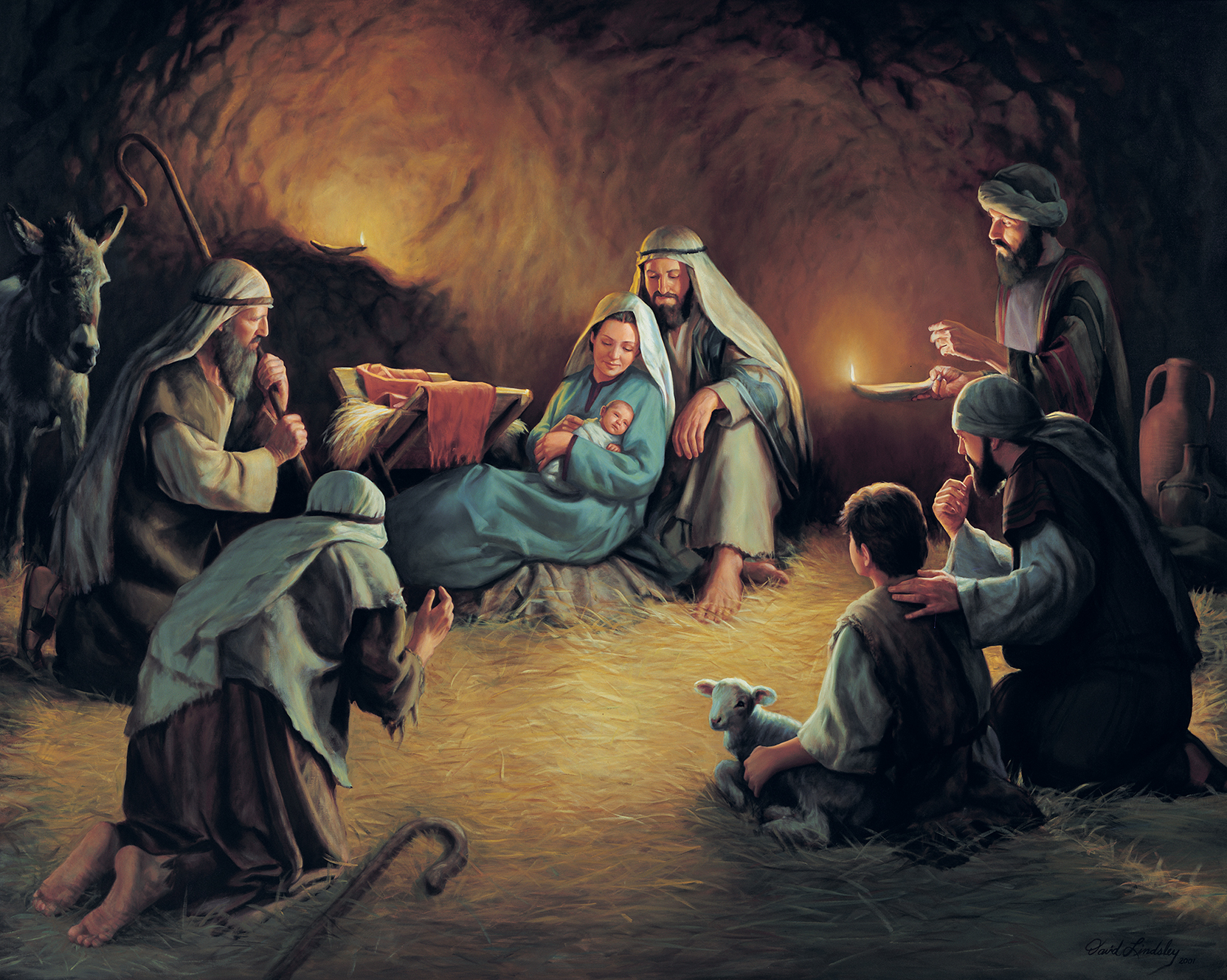
Tonight’s liturgy and readings of the Nativity of the Lord, Christmas Mass during midnight, is full of contrasting words and images.
In the first reading, the prophet Isaiah proclaims,
“The people who walked in darkness have seen a great light;
upon those who dwelt in the land of gloom a light has shone” (Isaiah 9: 1).
These prophetic words from Isaiah truly express the paradoxical challenge of living the spirit of Christmas: Christmas is to see and to walk towards the light amidst the darkness in our lives and our world
The second reading, St. Paul in his letter to Titus, also speaks of contrast. St. Paul speaks of the contrast of the two comings of Christ: (1) “the grace of God has appeared,” that is, in the Christ event (and Bethlehem marks the inception of its appearance); (2) “while we wait for the blessed hope and the manifestation of the glory…” Jesus already came into this world but he is still to come in the fullness of his glory.
Of all the readings, the gospel has the most contrasting images. Christmas is the birth of the king. But the new king wasn’t born in a palace, his birth wasn’t hailed by heralds fanning out to every corner of the empire. Instead, his family were refugees: They couldn’t find room at the inn; Mary gave birth in a stable; and the child had to rest in a manger.
There is darkness in the night, and yet the radiance of God’s love is in the child. The winter is cold, but the baby brings the fire of God’s love to earth. The baby is so small and helpless; and yet he is the Word, who in the beginning was God and was with God. The humble animals surround the child, but the angels of God sing his birth. The child is poor and lowly in origin, and yet all the power of God is his. The stable is lowly, but it is the king of kings who is born into it.

It is in these contrasts, indeed, that we can find the wonder of Christmas. Christmas is not the eradication of contrast but the acceptance of diversity. It is the welcoming of the other who is unique and different from me and you. It is not the elimination of differences. Moreover, Christmas is not the absence of conflict. Chrismas is not the escape from the chaos, misery and suffering in our lives.
Contrast, is at the core of God’s incarnation. The wonder of Christmas, most of all, is the immersion of God into our human experience, even the messiest, the muddiest and the darkest side of our humanity. The wonder of Christmas is God’s becoming human by not resorting to human power, prestige, wealth and fame. God became fully human without God stripping of God’s divinity and human becoming divine without human stripping of humanity.
This year, 2020, for many of us, is perhaps, the toughest year of our lives. Who would have thought, at the beginning of this year, that a pandemic would spread so fast into every corner of the world, making millions ill and killing thousands because of the virus. Many lost their jobs, many became hungry, homeless, depressed and abandoned. Many are worried and uncertain about the coming new year and beyond.
Because of the pandemic, many were saying that Christmas this year will be the saddest Charistmas of their lives. Many, in fact, did not have any money to spare to spend for their usual noche buena. Many Christmas parties and reunions were cancelled. The usual Christmas decorations and the firework display were either subdued or cancelled altogether.
But we cannot accept the reality that we cannot experience the joy of Christmas just because of the pandemic. On the other hand, the tremendous misery and difficulties brought by the pandemic did not dampen the spirit of Christimas. On the contrary, we rediscovered the wonder of Christmas in the compassionate embrace especially of those who suffered most and miserable during the pandemic. The pandemic gave us great fervour to feed the hungry, provide shelter to the homeless and give comfort to the sick and lonely. Indeed, the pandemic did not fizzle out the light of Christmas. The utter darkness that we now find ourselves, all the more convince us to be super spreaders of the good news of Jesus gospel and bearers of Christmas light. The Christmas spirit has become a pandemic itself, as the song of the Redemptorist goes,
gawing pandemya ang pasko, (Make Christmas a pandemic)
hawaan ng pag-asa ang bawat tao (contaminate every person with hope)
The people who walked in darkness have seen a great light, the prophet Isaiah proclaims thousands of years ago. We proclaim it now, once again, that in the darkness of the pandemic, we have seen the light of Christmas, we have felt love, acted with justice, truth, and peace and most of all experienced God as Emmannuel–God-with-us.
No amount of suffering and misery can dampen the Christmas spirit. No amount of gloom can postpone the joy of Christmas. No amount of tyranny can silence the true calling of Christmas. In other words, Christmas is a defiance! The more the world is plunged into darkness, the light of Christmas shines brighter. The more the world is plunged into death and suffering due to the pandemic, the original Christmas event of Jesus dwelling among us all the more bonds us into deeper social solidarity. The more the world is plunged into senseless impunity of killings and violence, the voice of Christmas shout much louder for peace and justice. The more the world is plunged into hunger and poverty, the aspiration of Christmas for sharing of creation’s resources for all becomes greater and greater. The more the world is plunged into materialism and vanity, the proclamation of the spirit of Christmas which is love, forgiveness and acceptance of all becomes stronger and stronger. As the world is plunged into sadness and misery, the challenge to spread the joy of Christmas all the more become urgent especially among the abandoned, homeless and lonely.
During the past 9 days of the Simbang Gabi we listened once again to the Christmas story. We heard how God’s story entered humanity through the lives of ordinary people who did not come from the nobility, wealthy and powerful. The response and participation of Mary, John the Baptist, Elizabeth, Zechariah, Joseph, and many other prophets and characters showed how God’s plan and dream for all humanity and creation has defied all wordly odds and proclaimed a true message of hope, peace and love.
Like the characters in the Christmas story, we are not passive observer of the great event of incarnation. We are all part of the wonder of Christmas not through the baby-cult, admiring the cute baby Jesus on the manger from the outside but not receiving Christ from the inside of our being. The wonder of Christmas is the reception of the Christmas story into our lives and like Mary, John the Baptist, Elizabeth, Zechariah, Joseph, and many other prophets and characters, it is allowing ourselves to become instruments and heralds of the building of God’s kingdom, here and now.
This Christmas, let us once again welcome in wonder and awe the greatest event of God’s coming into our lives. Together with the whole world let us bow down and adore our savior Jesus Christ our Lord. Let us humbly receive the birth of Jesus in our hearts and resoundingly accept our becoming part of the Christmas wonder.
A most blessed Christmas to all!



